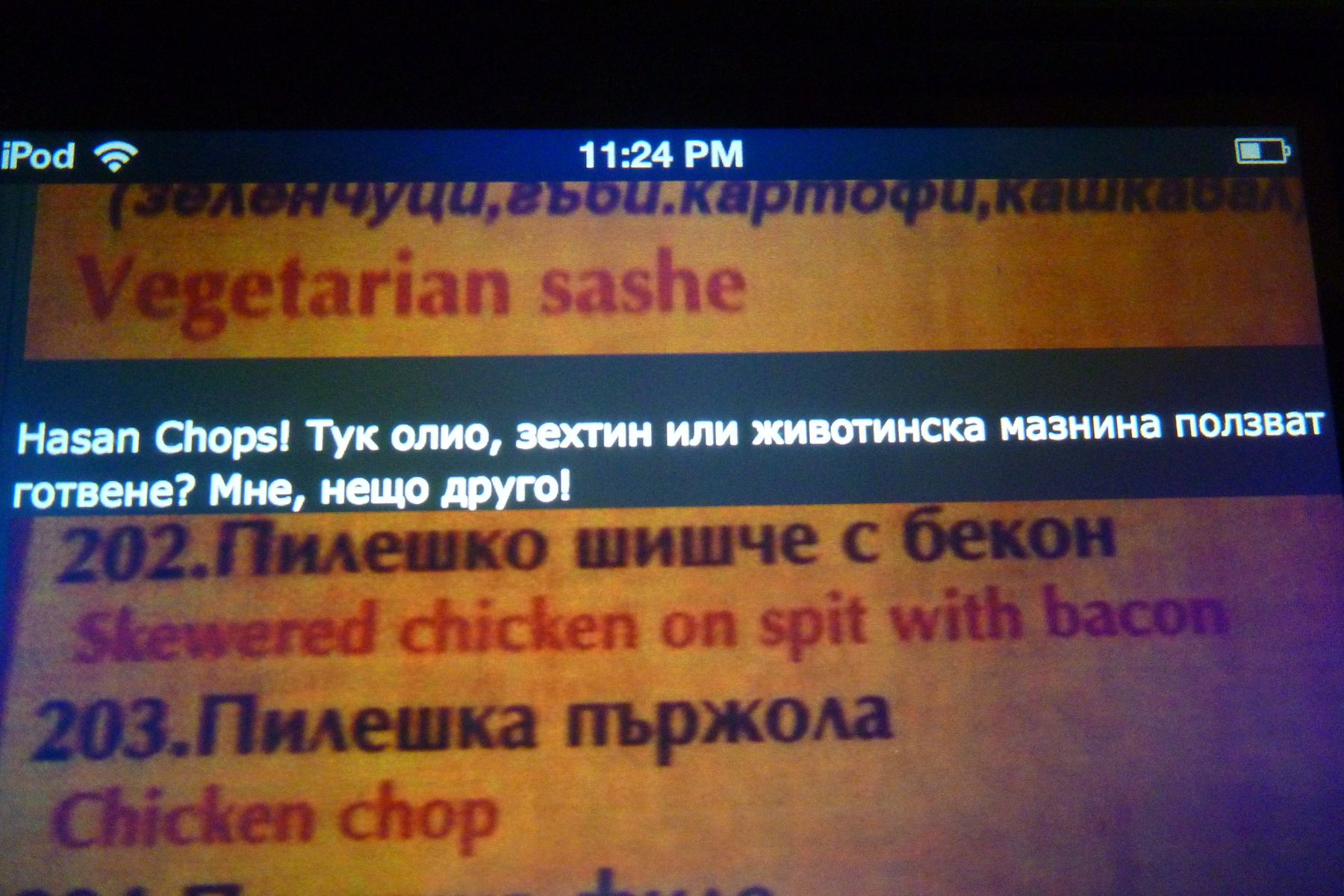Understanding Language
When you travel around the world, you have to learn to communicate with a huge variety of different people. Many of the people you encounter will use different languages, will have different values and beliefs, and may express themselves in unfamiliar ways.
When I was in Bulgaria, for example, I learned that the locals shake their heads from left to right to signal “yes”, and up and down to signal “no”. Imagine how confused I was trying to order food in a local cafe :).
Auto-translators don’t always work so well. See the wonderful English translations of this Bulgarian menu:





As I traveled, I tried to keep our limitations to communication in mind. A language barrier was, of course, a problem here and there, but I always seemed to manage to communicate simple things like asking for directions or ordering food, no matter where I was. More complicated communication, however, requires much more than a common language. It requires a common understanding.
So how can you manage this communication problem?

I felt like I had learned a lot about communication when I went through the orientation process to become a point of contact for the Venus Project. I listened to Jacque Fresco’s lectures about the inadequacy of language and people’s limitations to communication and realized that this language problem was not only a problem for travelers, it was a problem for all people, regardless of whether they ever encounter a foreigner.
After digging a bit into this topic, my understanding was that we could improve communication if we:
- Understand our limitations to communication-
– Understand that many words and sentences can be interpreted in many different ways, therefore the people you speak to might not interpret what you say in exactly the way that you interpret it, and vice versa.
– Understand that our different degrees of background knowledge about any particular topic limit our ability to discuss that topic.
- Try to understand each other better while communicating-
– Think about a person’s background and why they may be saying what they’re saying.
– Think about their intention to communication.
– Try to be understanding rather than emotional and defensive, even if you disagree with whatever is being said.
– Keep calm while communicating and try to stop your emotions from getting triggered by any particular words or phrases.
- I also considered the idea that a better-designed (less abstract) language with words based on physical referents would help people communicate properly.
This video might give you a better understanding of what I mean:
The above video was made by Tio (TROM), but after its release, Tio spent a year researching this topic and working on a book on language; as a result of his work, his thoughts on this topic evolved and he no longer agrees with this part of his own documentary :).
And I have to say that after reading the TROM book on language, the same thing happened to me. I realized that the ‘solutions’ that I previously had in mind were really just patchwork to a massively complex problem. I didn’t understand how much of a problem it was, actually, until after I read this book.
What I understand to be Fresco’s solution to our current problem of language and communication does not seem to be sufficient. Just because words are based on a physical referent doesn’t mean that the people using those words have sufficient background knowledge (/the same cultural context) to be able to communicate properly. It works with engineers and physicists because they share similar background knowledge and cultural context.
But the world is so complex and dynamic that this could never be achieved in an idiotic society that’s pushed and shoved by consumerism, irrelevant information, pseudoscience, etc. The only way to make a saner language is to create a saner society, because language is all about the context. If the context is insane and unscientific, the language will mirror that; if the context is based on science/a scientific way of thinking, the language will mirror that.
If you’re interested in delving into this topic, I highly recommend this book. In the book, you can find tons of interesting analogies, pictures, videos, and interactive tools that help you easily understand the complex topic of language and communication. In the end, you will even get an idea of how to create your own language, as that is what Tio started to create.
Before I read this book, I not only didn’t realize how important this topic was, but I also had no idea how interesting it is.
Thanks again TROM for creating such interesting, relevant material and making it trade-free ;).
